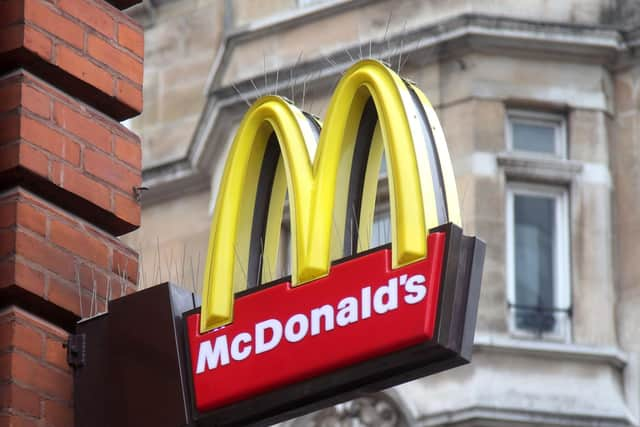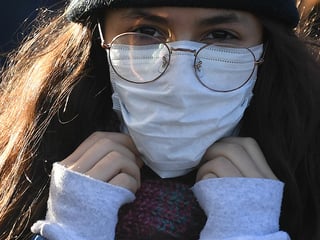Coronavirus: McDonald's to close all restaurant seating areas in Covid-19 fight
and live on Freeview channel 276
In a statement, chief executive Paul Pomroy wrote: ‘Our restaurants will remain open for as long as it is safe to do so.
‘In the last 24 hours it has become clear that we need to temporarily change our operations to ensure the wellbeing of our employees and customers consistent with the Government's guidance on social distancing.
Advertisement
Hide AdAdvertisement
Hide Ad‘Therefore from 5am tomorrow (Wednesday) morning all restaurants will close seating areas and temporarily move to being takeaway, drive-thru and McDelivery only.’


All restaurants will scrap dine-in operations, shut seating and close children's play areas, but toilets will remain open.
He added that all orders placed through Uber Eats and Just Eat would be ‘contact-free, with no physical contact between customers, employees and couriers, wherever possible’.
Workers in the emergency services and health and social care sectors will receive free drinks on presentation of their work pass.
Advertisement
Hide AdAdvertisement
Hide AdA McDonald's spokesperson said: ‘Given the unprecedented and unique situation and the need to contain any societal spread of Covid-19, currently if a company owned restaurant employee needs to self-isolate for 14 days we will pay them for this period, based on their average working hours.
‘This applies to both those on guaranteed hour contracts and flexible contracts working in company owned restaurants.
‘We are closely monitoring the situation and may review this as the Covid-19 response develops.’
The chain's annual Monopoly promotion is being paused until later in the year, the company added.
Advertisement
Hide AdAdvertisement
Hide AdMr Pomroy said: ‘This year's prizes include a number of luxury holidays, European city breaks and cruises which will have all been impacted by current and ongoing restrictions on international travel.
‘Following conversations with our suppliers and prize partners, we feel it is appropriate to delay the promotion until later this year.’
Coronavirus: the facts
What is coronavirus?
COVID-19 is a respiratory illness that can affect lungs and airways. It is caused by a virus called coronavirus.
Advertisement
Hide AdAdvertisement
Hide AdWhat caused coronavirus?
The outbreak started in Wuhan in China in December 2019 and it is thought that the virus, like others of its kind, has come from animals.
How is it spread?
As this is such a new illness, experts still aren’t sure how it is spread. But similar viruses are spread in cough droplets. Therefore covering your nose and mouth when sneezing and coughing, and disposing of used tissues straight away is advised. Viruses like coronavirus cannot live outside the body for very long.
What are the symptoms?
Advertisement
Hide AdAdvertisement
Hide AdThe NHS states that the symptoms are: a dry cough, high temperature and shortness of breath - but these symptoms do not necessarily mean you have the illness. Look out for flu-like symptoms, such as aches and pains, nasal congestion, runny nose and a sore throat. It’s important to remember that some people may become infected but won’t develop any symptoms or feel unwell.
What precautions can be taken?
Washing your hands with soap and water thoroughly. The NHS also advises to cover your mouth and nose with a tissue or your sleeve (not your hands) when you cough or sneeze; put used tissues in the bin immediately and try to avoid close contact with people who are unwell. Also avoiding touching eyes, nose and mouth unless your hands are clean.
Sources: World Health Organisation and NHS
